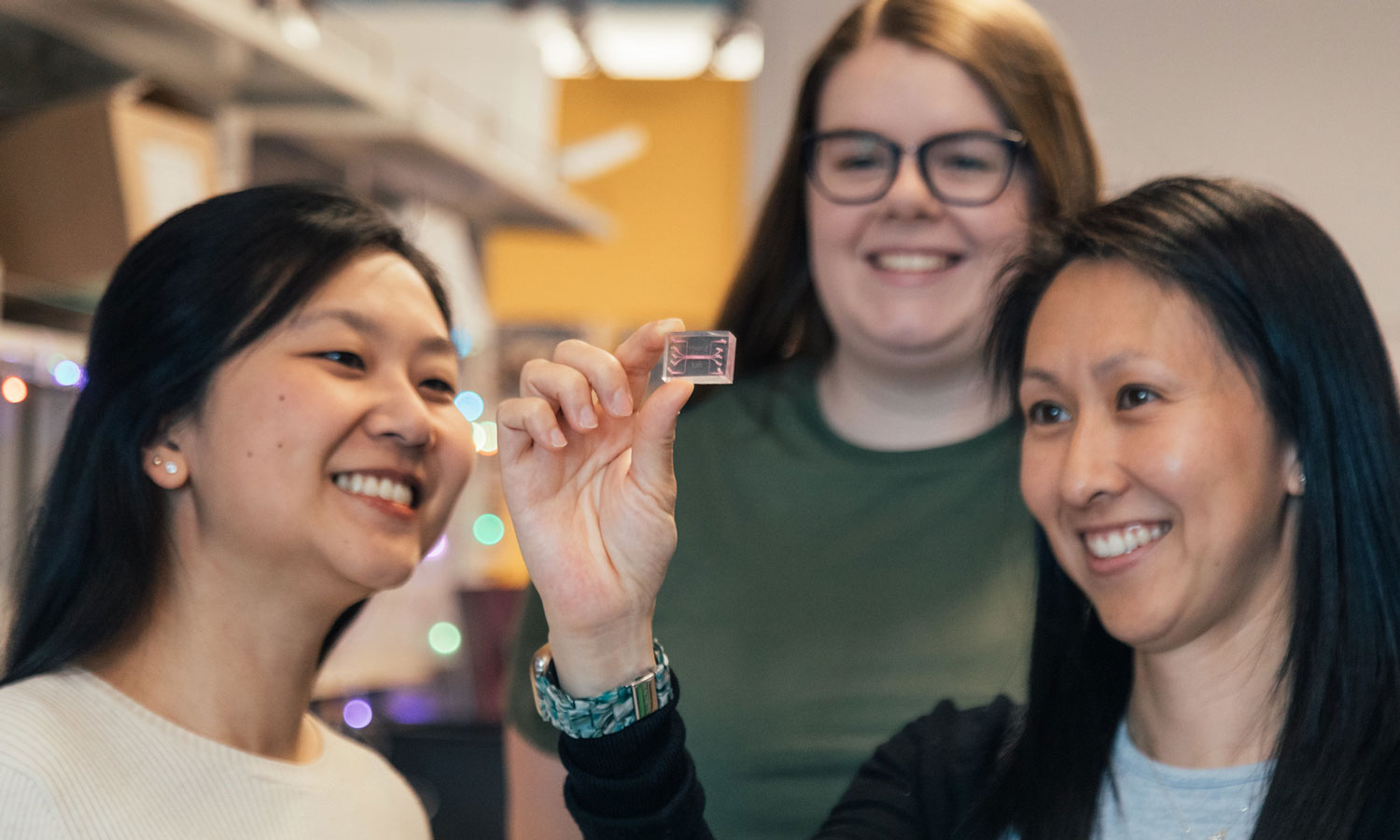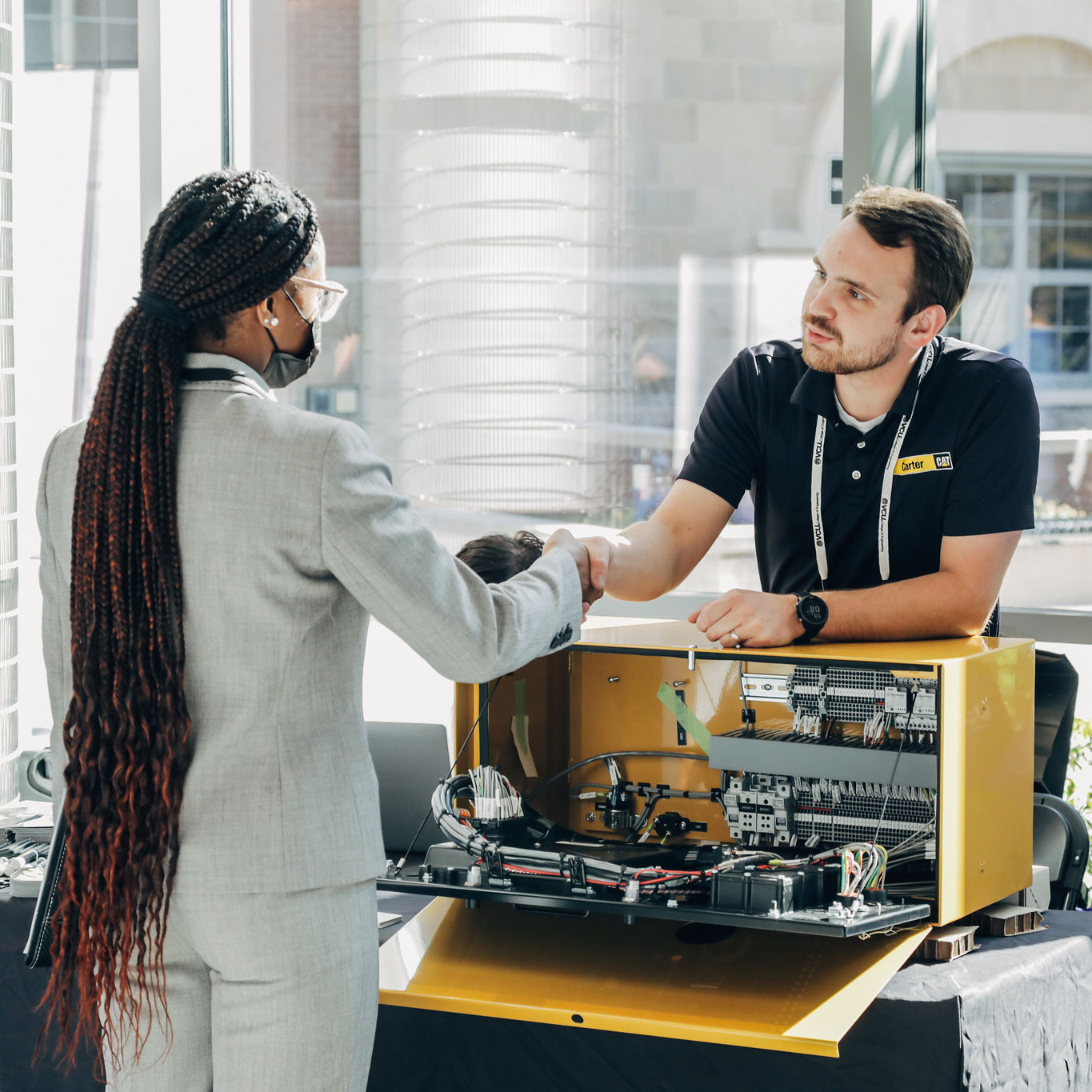Biomedical Engineering (BME) at VCU
From the moment you enroll at the VCU College of Engineering, you’ll have opportunities to conduct research and work in labs with nationally and internationally prominent faculty. This includes interaction with VCU Health faculty and is conducted at VCU Engineering’s state-of-the-art Engineering Research Building.
Lab and classroom education are equally important for VCU Engineering students. Starting in your first semester of your freshman year, you’ll have access to learning spaces that help you apply the theoretical knowledge from a lecture in a practical, real-world lab environment.
Learn to apply engineering principles in the research, design and deployment of:
- Medical devices
- Implant systems
- Assistive devices for rehabilitation
You will have the opportunity to work on:
- Investigating the molecular mechanisms of cellular mechanotransduction
- Developing tools to image cardiac hemodynamics
- Exploring methods of improving rehabilitation
Find your specialty
Take part in hands-on learning opportunities with our biomedical engineering program as soon as you enroll at the College of Engineering. From creating new devices to aid patients with rehabilitation to engineering artificial tissues for implantation, and more, our experienced faculty help guide your education.
Students seeking professional or graduate degrees after completing undergraduate studies have unique paths through the biomedical engineering program, where all students specialize in one of these directed study options:
- Cellular, tissue and regenerative engineering
- Biomechanics and rehabilitation engineering
- Biomedical instrumentation and imaging


Your path to medical school
Build a unique foundation for your career in medicine with our pathway to medical school curriculum. This includes:
- Project design with VCU Health clinicians
- Medical rounds at the VCU Health campus starting your freshman year
- Access to the guaranteed admission program at the VCU School of Medicine


Your first job won’t be your first job
Your journey at the College of Engineering moves you toward an engineering career. You will have many opportunities to work with employers before graduation, developing an understanding for the kind of work you enjoy and building a network of relationships for the foundation of your career. These opportunities include:
Internships: Apply what you learn in the classroom in a professional setting to gain valuable practical experience in the biotech or medical device industry.
Cooperative Education (Co-op): Take a semester away to work a full-time engineering job while maintaining student status. Get paid, learn valuable industry knowledge and grow your professional network.
Student Organizations: Find like-minded students with a passion for biomedical engineering.
Vertically Integrated Projects (VIP): Get school credit while leading and contributing to large-scale, multi-year research.
Outreach and Service Learning: Volunteer with other biomedical engineers at K-12 schools or work on biomedical design projects for rehabilitation facilities.
Looking to the future
Biomedical engineering students find success in a variety of industries and our graduates work at companies like:
- Boston Scientific
- The National Institutes of Health
- Veterans Health Administration
- United States Patent and Trademark Office
- United Therapeutics
- Medtronic
- Food and Drug Administration


Beyond the classroom
Centered in the heart of Richmond, Virginia (often referred to as RVA), college life at VCU is completely different from a more isolated, traditional campus experience. There’s so much to do, and RVA isn’t just any city. It’s got character. A state capital with an unlikely mix of qualities — historic, artsy, food-obsessed, Southern, diverse, laid-back — it has just the right dose of grittiness to give it an edge.
